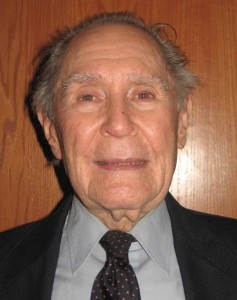Why are there so few Alzheimer’s caregiver support groups for men in America?
 Guest Post by Eugene A. Conrad
Guest Post by Eugene A. Conrad
Is it okay for a husband to seek female companionship while his wife is confined to a nursing home?
A question easily discussed in an all-male caregiver support group, but because of embarrassment, hardly expected with women present. Perhaps, women feel the same about this topic in a mixed support group.
Why do we have so few all-male caregiver support groups?
There are six identifiable in the whole United States and none in major cities. Nearly all others are mixed groups, mainly female and led by the same gender.
Yes, “Men are from Mars, Women are from Venus,” according to John Gray, PhD.
It is challenging to recruit men to join a support group and keep coming back.
The Alzheimer’s Association manual for group instructors lists many marketing methods for recruiting. Each state chapter’s website has a section on current support groups and contact information. Group leaders use various methods for recruiting. These include personal promotion, newspaper articles, and notices in newsletters.
Getting a core group of three or more often takes time and perseverance. Convinced of the value may prompt the core members to recruit others to help grow the group.
The next challenge is to provide meetings of interest to assure repeat attendance.
An educational format coupled with time for sharing/caring and stress management is desirable. This conclusion comes from a limited survey of the 6 identified U.S. all-male AD caregiver support groups. Leaders follow AD and caregiver literature for sharing and discussion. At first, men may be reticent in joining a support group. Good communication skills and knowledge about dementia through a job or as a caregiver (my case) are essential.
Organizing more all-male AD caregiver support groups remains a major challenge for the Alzheimer’s Association and kindred organizations. It is unfortunate that major U.S. cities do not sponsor such groups for men who feel more comfortable voicing personal concerns without women present.
Men often find it difficult to accept help. This goes against the male image. It is more difficult for men to share personal information in a group. In time, new members accept the kinship of other men in caregiving. Sharing personal experiences serves to decrease the feeling of aloneness. Yes, it takes a personal experience to prompt a man to join a support group.
![]()
Words of Thanks
First, I appreciate the invitation from Brenda Avadian to continue writing about all-male caregiver support groups and the help from other leaders. My sincere thanks go to: Krista Scheel (Program Director of the Alzheimer’s Association, Southeastern Wisconsin), Esther Olson (facilitator for the Connecticut Chapter of the Alzheimer’s Association), Mary Kazi (AFCSP Coordinator for the Alzheimer’s & Dementia Alliance of Wisconsin) and Fred Olson (leader of the Eden Prairie, Minnesota support group).
![]()
Eugene A. Conrad spent two decades in the pharmaceutical industry retiring as Senior Director of Clinical Research at Purdue Pharma. He served on the Stamford, Conn. Board of Representatives, Health Commission and as interim Health Director. He authored and published two handbooks on home healthcare, assisted living and long-term nursing. Now, Gene leads two all-male AD caregiver support groups for the Connecticut Chapter of the Alzheimer’s Association.
![]()
Three men were recognized in August, September, and October as The Caregiver’s Voice Caregiver of the Month.
Click on each link to learn more about these caregiver heroes.
Also, to learn more about male caregivers, read Gail Sheehy’s The Secret Caregivers in AARP Magazine, May 2010 [UPDATE 6/3/2019: Link no longer available]









This article is insightful and highlights the social importance of and need for support groups. The fact that humans are social beings and that psychological research finds benefits of support groups on human well-being across all areas and ages, does not reflect the reality that our culture does not utilize this resource as much as it ought to. I applaud Gene as well as those affiliated with The Caregiver’s Voice for being a part of the solution.
Don, many thanks for your thoughtful comments.
I know what it feels like to be in a support group as a man and there are mostly woman. There are two other men in the group but neiter are caring for their wife. Neither regretfully still has caregiver responsibilities. One lost his loved one and the other was taking care of his mother in law. It’s hard for a man to express his feelings or concerns because we feel we can handle it all. I have learned from 8 years of experience with Lewy Body dementia with Parkinson’s that I can not handle it alone. I would encourage all men to attend these support meeting no matter how many woman are in the group. You may be surprised to find out how much you can learn from woman on how to care for your loved one. Through a on line support group which turned against me when I was in need (FB/MP) , I made a lot of friends, mostly female, which have helped me a lot. Gary LeBlanc has written two books which will help men as well as woman in dealing with Alzheimer’s, Parkinsons’s and Dementia. I encourage anyone that is a caregiver to read these books. Yes, man do need help in caregiving and not just from other men.